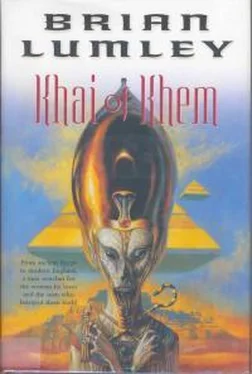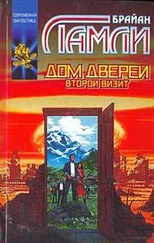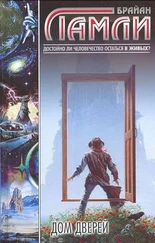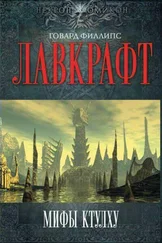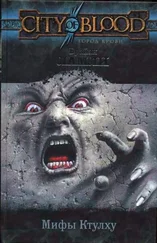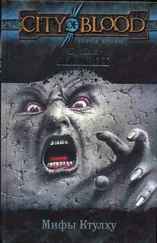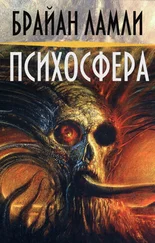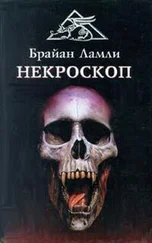The naked, butchered carcasses of his mother and sister where they sat like gargoyles—no longer human beings but slaughtered animals—overlooking Asorbes through sightless eyes, transfixed and supported by crimson-tipped spines of bronze....
Unlike the tombs and monuments of a later age, Khasathut’s pyramid was not an almost solid mountain of stone, but a multi-storied maze of shafts, corridors and chambers whose total internal capacity was perhaps as great as two percent of the whole. That is to say that for every fifty cubic feet of solid stone, there was perhaps one of air or living-space. There were also sophisticated air-conditioning systems, with inlets and outlets through panels of perforated stone in the pyramid’s outer skin, and a catchment system which provided the massive monument with its water.
Moreover, incorporated into the structure was a series of smooth-lined, near-vertical shafts which were designed to channel sand from the topmost quarter of the pyramid to its basement temples and living areas, including Pharaoh’s subterranean tomb and the quarters of his entire Black Guard. When Khasathut was ready for his interment, his guardsmen would accompany him into darkness— entombed alive behind thousands of tons of sand.
Khai knew the layout of many of these rooms, passages, slipways and watercourses well; indeed, he had always been interested in his father’s work and during the last seven or eight years had often clambered with him in and about the pyramid’s levels as each was completed in its turn. His interest had extended to Harsin Ben’s drawings and plans, so that he understood a great deal of the principles underlying the pyramid’s construction; and as his stumbling feet moved him forward between the huge blacks—and despite the fact that he was close to exhaustion and closer to madness—still he recognized the ways he walked and knew that he was quickly descending into bowels of rock. The way was lighted by steadily burning flambeaux, causing shadows to leap on walls of stone, and as the party approached these blazing sources of light, Anulep’s shadow crept along the walls until it fell upon Khai. Each time this happened, it caused a chill inside the boy which was at once dreadful and preternatural.
As they went, so the Vizier began to talk to Khai, his voice sepulchral as it echoed back from where he strode on ahead. “One learns fast in the pyramid, boy, or else one is lost. Your father built the pyramid, and so I expect you will learn all the faster. You will learn the pyramid’s ways; its known, well-trodden ways, yes, and its secret ways, too … and its laws. Above all else, you will learn obedience to me, and through me obedience to Pharaoh.
“Pharaoh’s life draws quickly to an end, moves ever closer to that final day when he will draw his last breath—at least until the return of his ancestors from the stars. Age will not have brought him down, even though he is older than most men. No, for while his body ages, his lusts and passions seem to grow greater. Ah!—and did you think that Pharaoh was beyond passion and lust? As he is greater than men, so his needs are more … demanding. Certain of your future duties will be concerned with Pharaoh’s needs—closely concerned.”
So Anulep’s voice went on and on, echoing through the bowels of the pyramid and becoming almost hypnotic in its monotony. Against all natural laws, Khai was drawn back from the abyss by that voice, saved from what might otherwise have become a permanent withdrawal from a world grown far too monstrous for him. Much of what he was told escaped his understanding, but at least the Vizier’s voice was a focal point, something to hang onto as his mind clawed its way back from the chasm of horror which threatened to engulf it.
In what seemed to Khai a very short time, they had descended to the more frequently used and inhabited levels of the pyramid—those which were closer to ground level, where cavernous temples and great halls loomed on every side and slaves, strangely-crowned priests and acolytes came and went in eerie silence by the light of oil- and resin-burning flambeaux—but Anulep and his party barely paused before plunging deeper still. Khai had time enough to glimpse huge golden idols and figures carved from white limestone, massive statues of gods with the bodies of men and the heads of birds and animals, huge basins of burning oil which illuminated grottoes of untold mystery, and the blackened mouths of vast flues where they opened high in darkly domed ceilings, before he was carried down into the nethermost vaults beneath.
Here in the very bowels of the earth, the air-conditioning was less effective—either that or the odors of the place were more difficult to dispel—and Khai’s nose involuntarily wrinkled as certain particularly offensive smells were wafted to him. The light was much more subdued here and the shadows so much darker; and now there were strange sounds and furtive-seeming movements suggestive of esoteric industry. Approaching the entrance to a huge room where the light was somewhat brighter, Anulep bade the Nubian guardsmen wait outside and took Khai from them to lead him into the chamber. They paused just within the threshold where the high priest cautioned: “Wait! We can see all we need to see from here.”
There, engaged in various alchemical activities about sunken stone vats whose contents bubbled and seethed with unpleasant sucking sounds, seven darkly-robed figures worked to the slow pace of their own low chanting, only pausing when they sensed the presence of Anulep and the boy. Seven pairs of eyes turned to stare luminously in the flickering gloom, until Anulep pulled on Khai’s arm and drew him out of the chamber.
“We must not disturb them, boy,” the high priest said, “for they are about Pharaoh’s work, as they have been about it for more than twenty years. They are the Dark Heptad—the seven most powerful necromancers and wizards in all Khem and the lands around, and they seek that earthly immortality in which Pharaoh would clothe his eternal ka. If they fail him ... then he must wait on the return of his ancestors from the stars. But if they succeed—ah!— then Pharaoh will live forever!
“I repeat: it is not age that ails him, boy, though indeed he waxes very old. No, it is the poisons within him. The poisons of his own blood, and of the Nile’s blood, which is in him as it was in his earthly forebears. The great gods that came when the tribes were ignorant hoped to strengthen their blood by mixing it with the raw blood of men, but they were not successful. Khasathut is the last of his line. His seed is plentiful, indeed copious, but it does not take root. There will be no more Pharaohs with the blood of gods in them. Not until the second coming.
“That is another reason why Khasathut seeks immortality; so that ordinary men shall never occupy the great throne of Khem. And so the Dark Seven work for him as he desires, and as you shall see, they have had their successes … of a sort. Come—”
Now they passed along a rock-cut corridor to a room guarded by a gate of massive bronze bars. Anulep produced a key and turned it in the lock, then threw the gate open. While the two guards waited outside, showing an agitation and a fear which Khai noted even through his aching numbness of mind, Anulep led his charge into the dark chamber beyond the gate. As if their movements had stirred up something rotten, gusts of an evil fetor seemed to rise up stiflingly from the floor, so that Khai pinched his nostrils.
The place was lighted by a handful of tiny lamps placed at intervals along its length, and as Khai moved slowly over crumbling debris, his eyes grew more accustomed to the gloom. And suddenly he understood the stench of the place as he recognized it for what it was: a mortuary! The feet of corpses by the dozen stuck out from niches in the walls, and cadavers in various stages of disintegration lay in piles everywhere. Now Anulep took up one of the tiny lamps and held it close to a mound of bodies.
Читать дальше
